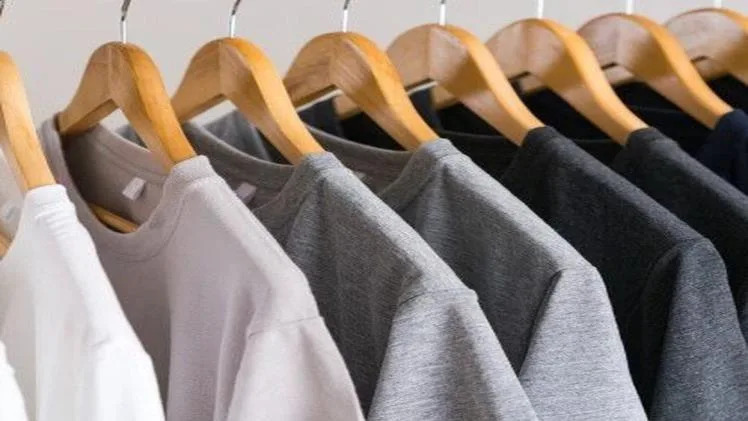Are you an apparel business owner looking to take your brand to new heights? One key factor that can make or break the success of your business is the quality of your products. And when it comes to apparel, selecting the perfect t-shirt manufacturer is of utmost importance. With so many options available in the market, how do you ensure that you make the right choice?
In this blog post, we will share essential tips that will help you navigate the process of finding the ideal t-shirt manufacturer for your business. From understanding your specific needs to evaluating factors like production capacity, quality control, and pricing, we’ve got you covered. So, let’s dive in and discover how you can elevate your apparel business by selecting the perfect t-shirt manufacturer.
Evaluating the Manufacturer’s Reputation and Credibility
When selecting the perfect t-shirt manufacturer for your business, for instance, Appareify our top pick among others. it is essential to evaluate their reputation and credibility. This step will help ensure that you partner with a manufacturer who meets your quality and reliability standards. Here are some tips to follow:

Researching online reviews and testimonials
Start by conducting thorough research online to find reviews and testimonials about the manufacturer. Look for feedback from previous clients who have worked with them. These reviews can provide insights into the manufacturer’s performance, product quality, and customer satisfaction levels. When choosing wholesale t-shirts, focus on quality fabrics that ensure durability and comfort, ultimately enhancing customer satisfaction and your brand’s reputation.
Checking for certifications and industry affiliations
Certifications and industry affiliations can indicate the manufacturer’s commitment to maintaining high standards. Look for certifications such as ISO 9001, which demonstrates a focus on quality management systems. Additionally, associations and affiliations with reputable industry organizations can lend credibility to the manufacturer.
Assessing the manufacturer’s experience and track record
Consider the manufacturer’s experience and track record in the industry. A manufacturer with several years of experience is likely to have a better understanding of the production process and potential challenges. Evaluate their past projects and inquire about their success stories and references.
Requesting samples and reviewing their previous work
Request samples of the manufacturer’s previous work to evaluate their product quality, fabric choices, and craftsmanship. Examining the samples will give you a firsthand idea of what you can expect from them. Pay attention to the stitching, printing, and overall finishing of the t-shirts.
Understanding the Manufacturer’s Production Process
Understanding the manufacturer’s production process is crucial to ensure they have the capabilities to meet your requirements. Here are some important factors to consider:
Inquiring about their manufacturing facilities
Inquire about the manufacturer’s production facilities and equipment. Find out if they have the necessary machinery and technology to handle your order volume. Well-equipped facilities can ensure efficient production and timely delivery.
Assessing their production capabilities and efficiency
Evaluate the manufacturer’s production capabilities in terms of quantity, turnaround time, and ability to handle customization requests. Discuss your specific requirements and gauge their capacity to meet them. Consider factors such as minimum order quantities and lead times.
Verifying their quality control measures
Quality control is crucial when it comes to selecting a t-shirt manufacturer. Inquire about the manufacturer’s quality control procedures, such as product testing, inspections, and adherence to industry standards. A manufacturer that prioritizes quality control will help you maintain consistency in your products.
Ensuring ethical manufacturing practices are followed
Ethical manufacturing practices are increasingly important for businesses and consumers alike. Inquire about the manufacturer’s commitment to ethical sourcing, fair labor practices, and environmental sustainability. Choosing a manufacturer with strong ethical values aligns with customer expectations and helps build brand trust.
Assessing Communication and Customer Support
Effective communication and reliable customer support are essential for a successful partnership. Here’s what you should consider:
Availability and responsiveness of the manufacturer
Choose a clothing manufacturer like Appareify (find more info about this company here) who is readily accessible and responsive to your queries. Prompt communication ensures that any issues or concerns are addressed quickly, minimizing production delays or mistakes. Look for manufacturers who have dedicated points of contact for efficient communication.

Clear communication channels and language proficiency
Ensure that the manufacturer has clear communication channels in place. This could include email, phone, or online platforms. Additionally, if you are working with a manufacturer from a different country, verify their proficiency in your preferred language to avoid misunderstandings or miscommunications.
Support for product customization and alterations
If you require customized t-shirts or alterations to existing designs, confirm that the manufacturer is capable of accommodating your specific needs. Discuss the level of customization they can offer and any associated costs. A manufacturer who can adapt to your requirements is an asset to your business.
Problem-solving and conflict resolution capabilities
Inquire about the manufacturer’s problem-solving and conflict resolution approach. There may be occasions when issues or disagreements arise during the production process. A manufacturer who exhibits strong problem-solving skills and a commitment to resolving conflicts can help maintain a positive working relationship.
Cost Analysis and Budget Considerations
While cost should not be the sole determining factor, it is important to analyze the financial aspects of partnering with a t-shirt manufacturer. Consider the following:
Obtaining detailed pricing information
Request a detailed breakdown of the manufacturer’s pricing structure. This includes understanding the cost per unit, any additional charges, and payment terms. Compare quotes from different manufacturers to ensure you are obtaining a competitive price while maintaining quality.
Evaluating the manufacturer’s payment terms and conditions
Review the manufacturer’s payment terms and conditions. Assess the initial deposit required and when the balance is due. Be cautious of any hidden fees or unusual payment terms. Understanding the financial obligations will help you plan your budget accordingly.
Analyzing the overall cost-effectiveness of the manufacturer
Consider the overall cost-effectiveness of working with a manufacturer. This involves evaluating the balance between price, quality, and other factors such as production efficiency and customer support. Choose a manufacturer that offers a reasonable price without compromising on crucial aspects.
Balancing quality and price to align with budget constraints
Strike a balance between quality and price that aligns with your budget constraints. While it may be tempting to choose the cheapest option, remember that compromising on quality can negatively impact your brand reputation and customer satisfaction. Invest in a manufacturer who can deliver the desired quality within your financial limitations.
Evaluating Sample Products and Prototypes
Before finalizing your partnership with a t-shirt manufacturer, it is crucial to evaluate their sample products and prototypes. Follow these steps:
Requesting sample products for evaluation
Ask the manufacturer to provide sample t-shirts for you to evaluate. This will give you an opportunity to assess the overall quality, fabric feel, and sizing accuracy. Pay attention to details like printing and stitching.
Examining the quality, fit, and finish of the samples
Inspect the sample t-shirts carefully for quality, fit, and finish. Are the seams straight and secure? Is the printing clear and durable? Consider aspects such as color consistency, fabric softness, and overall comfort.
Testing the durability and longevity of the products
Conduct durability tests on the sample t-shirts to evaluate their longevity. Check for color fading, shrinkage, and fabric pilling. Evaluate how the t-shirts hold up after repeated washes and regular use.
Seeking feedback from potential customers or focus groups
Gather feedback from potential customers or conduct focus groups to gauge their opinion on the sample t-shirts. This outside perspective can provide valuable insights and help you make an informed decision.
Seeking Recommendations and Referrals
Don’t overlook the power of recommendations and referrals when selecting a t-shirt manufacturer. Consider these approaches:
Asking for recommendations from industry peers or experts
Reach out to industry peers or experts and ask for recommendations. They may have valuable insights based on their experiences with different manufacturers. Their recommendations can help streamline your selection process.
Seeking referrals from trustworthy sources
Seek referrals from trustworthy sources such as friends, colleagues, or fellow business owners. Recommendations from people you trust can instill confidence in your decision-making process.
Joining relevant industry forums or communities for insights
Participate in relevant industry forums or online communities where discussions about t-shirt manufacturing take place. Engaging with industry professionals can provide you with valuable insights, tips, and recommendations.
Utilizing networking opportunities to gather information
Attend trade shows, conferences, or networking events related to the apparel industry. These events offer opportunities to meet manufacturers in person, ask questions, and gather essential information to inform your decision.
Finalizing the Manufacturing Agreement
Once you have thoroughly evaluated and selected a t-shirt manufacturer, it’s time to finalize the manufacturing agreement. Consider the following:
Negotiating terms and conditions
Negotiate the terms and conditions of the manufacturing agreement. This includes aspects such as minimum order quantities, pricing, delivery schedules, and warranties. Review all contractual obligations and seek legal advice if necessary.
Defining delivery schedules and production timelines
Agree upon clear delivery schedules and production timelines with the manufacturer. This ensures that both parties have a shared understanding of deadlines and can plan accordingly.
Establishing quality assurance measures and standards
Define quality assurance measures and standards in the manufacturing agreement. This can include specifications for fabric quality, stitching standards, and printing requirements. Ensure that the manufacturer has a comprehensive understanding of your quality expectations. Check what type of printers they use to ensure that they align with the printing requirements outlined in the quality assurance measures. It’s crucial that the manufacturer’s equipment can meet the necessary standards for the final product. A good option is the Prestige L2 DTF printer.
Signing a legally binding agreement to formalize the partnership
Once all terms are agreed upon, sign a legally binding agreement to formalize the partnership with the manufacturer. This agreement protects both parties’ interests and establishes a foundation for a long-term, collaborative relationship.
Monitoring and Assessing the Manufacturer’s Performance
Monitoring the manufacturer’s performance is essential to ensure the ongoing quality and consistency of your t-shirt production. Consider the following:
Regularly communicating with the manufacturer
Maintain regular communication with the manufacturer throughout the production process. This allows you to address any concerns promptly and provides an opportunity for the manufacturer to seek clarification on any requirements.
Conducting quality control checks on received products
Perform regular quality control checks on the t-shirts received from the manufacturer. Inspect the products for any defects, inconsistencies, or deviations from the agreed-upon standards. Providing feedback to the manufacturer helps maintain quality standards.
Reviewing customer feedback and satisfaction levels
Gather customer feedback and monitor customer satisfaction levels. This feedback can help identify any areas for improvement or potential issues with the manufacturer’s performance. Addressing customer concerns promptly demonstrates your commitment to quality.
Evaluating the long-term performance of the manufacturer
Continuously evaluate the long-term performance of the manufacturer. Assess factors such as consistency in product quality, adherence to delivery schedules, and responsiveness to issues. Flexibility to adapt to changing business requirements is an essential aspect of long-term partnerships.
Conclusion: Taking Your Apparel Business to New Heights
Selecting the perfect t-shirt manufacturer such as Appareify is a critical factor that can take your apparel business to new heights. Thorough research and evaluation enable you to make an informed decision. By considering factors such as reputation, production process, communication, cost, sample evaluation, referrals, and monitoring performance, you can establish a strong partnership for long-term growth. Prioritizing customer satisfaction and maintaining your brand’s reputation will be key in creating a successful business in the apparel industry.


